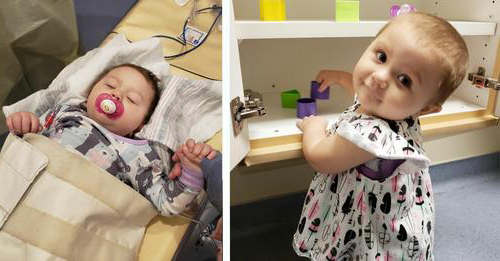
Neuroblastoma is a type of cancer that primarily affects young children, particularly those under five years old. This illness stems from the development of immature nerve cells and can manifest in various parts of the body. It is most frequently found near the adrenal glands, which are situated above the kidneys. The condition can be quite challenging to manage, given its aggressive nature, especially in advanced stages.
When a child is diagnosed with neuroblastoma, the course of treatment is tailored to the specific stage of the disease. Common treatment options include surgery, chemotherapy, radiation therapy, stem cell transplants, and immunotherapy. The prognosis for children diagnosed with this type of cancer varies based on individual risk factors, but the five-year survival rate is generally above 50%. However, this statistic can be misleading, as the treatment journey can be arduous, particularly for those diagnosed with stage 4 neuroblastoma.
One poignant story is that of a young girl named Molly, who was just 21 months old when she received a stage 4 diagnosis in 2017. Her mother, Chelsea, revealed the heartbreaking reality of Molly’s situation, explaining that the cancer had spread throughout her small body, necessitating an aggressive treatment regimen. Over a grueling 15-month period, Molly endured 130 days of hospitalization. During this time, she underwent multiple treatments, including chemotherapy, stem cell transplants, surgeries, radiation, and immunotherapy.
Chelsea frequently shared updates on Molly’s journey through social media, expressing both the joy and pain of their experiences. “We’re just thankful that she made it through all that treatment,” Chelsea remarked, highlighting the intensity of the experience. The side effects of the treatments were severe; Molly experienced significant illness and even permanent hearing loss as a result of her therapies. At such a tender age, she now relies on hearing aids, a testament to the harsh realities of her battle against cancer.
The day finally came when Chelsea received news that Molly had completed her intense treatment program. After five challenging rounds of chemotherapy, she received a phone call that would change their lives forever. Overwhelmed with emotion, Chelsea fell to the ground in gratitude after learning that Molly had achieved remission. The relief and joy this news brought to their family were palpable, as they celebrated a significant milestone in their journey.
In honor of Molly’s good news, the family planned a much-anticipated trip to the beach. Throughout her treatment, simple pleasures like bathing and swimming had become difficult due to her medical condition. With her remission, Molly was now free to engage in these activities again, a symbol of her regained health and vitality.
While there was immense happiness surrounding Molly’s remission, the family remained vigilant and aware of the risks that lay ahead. Chelsea shared that neuroblastoma has a notable chance of recurrence, which led them to participate in a clinical trial for a new drug aimed at preventing relapse. This ongoing commitment to Molly’s health included regular scans every three months to monitor her progress.
Molly’s journey reflects not only the difficulties faced by families dealing with pediatric cancer but also the hope and resilience that can emerge from such challenging circumstances. Her story resonates deeply, showcasing the strength of a young girl who has faced overwhelming odds and continues to inspire those around her. As her family looks back on the past two years, they are filled with gratitude and amazement at how far they have come, celebrating Molly’s spirit and the happiness she brings to their lives.